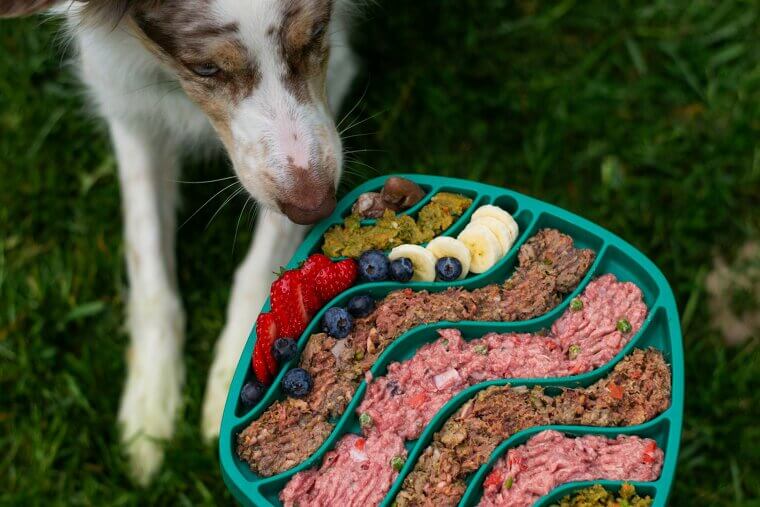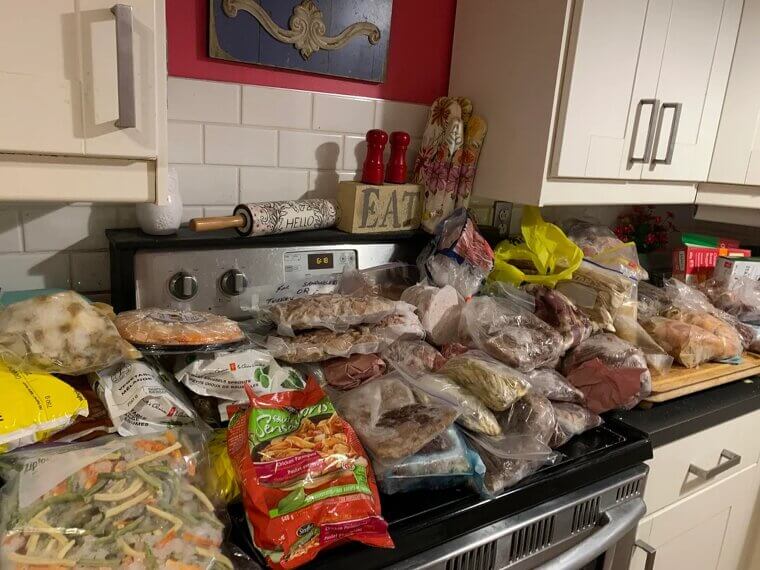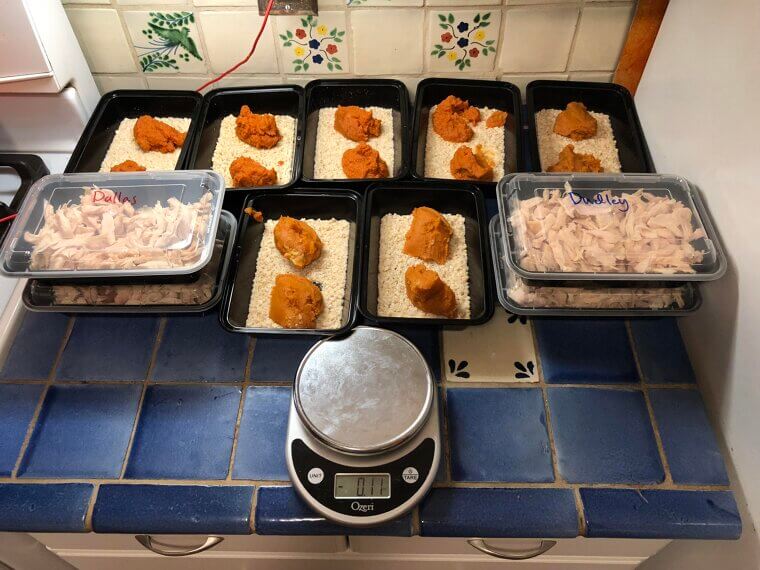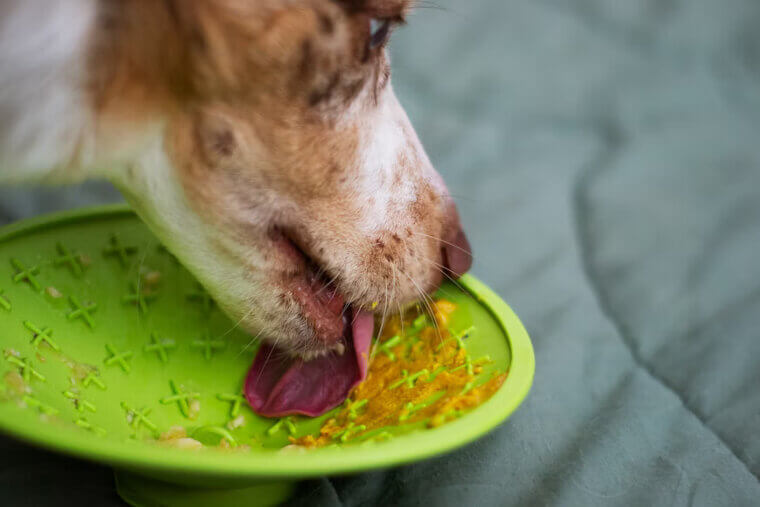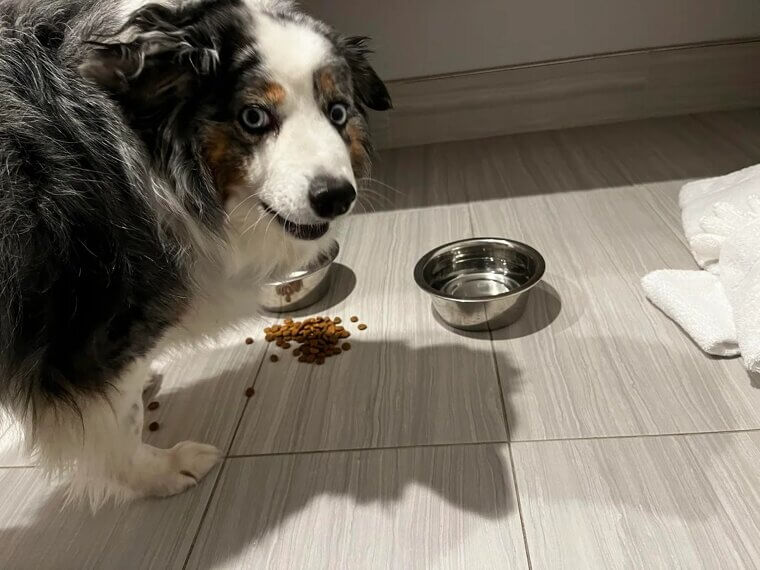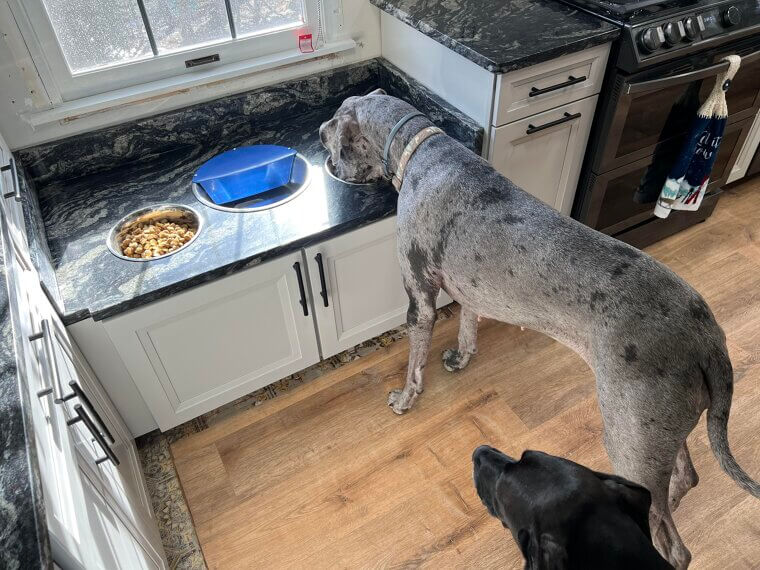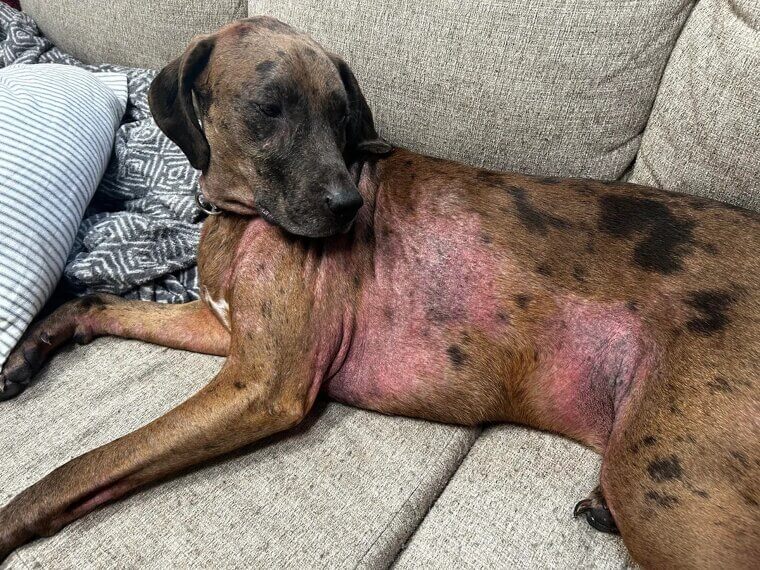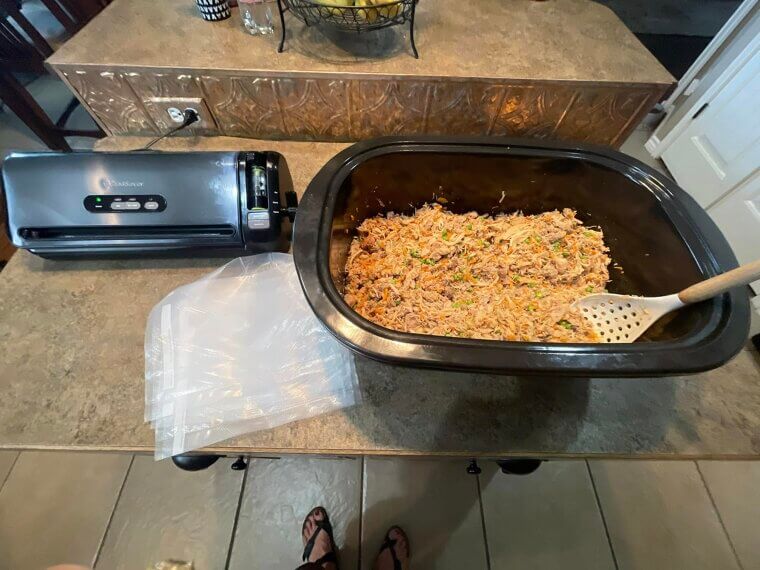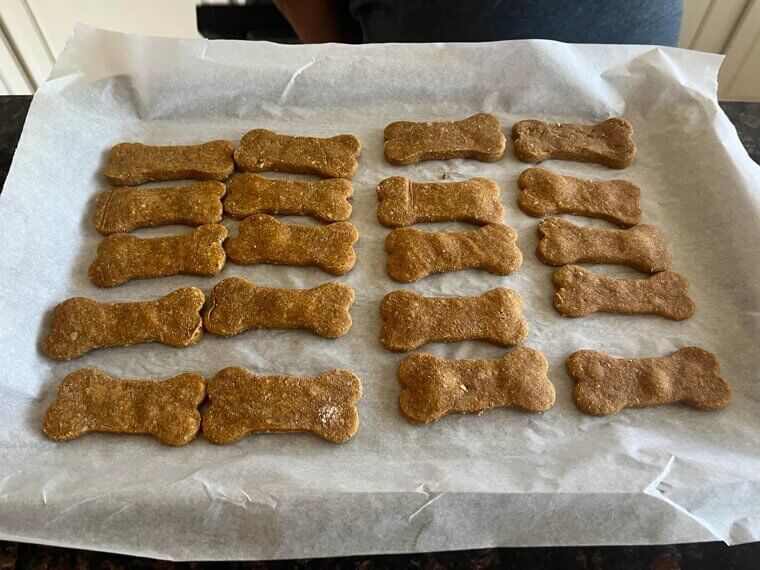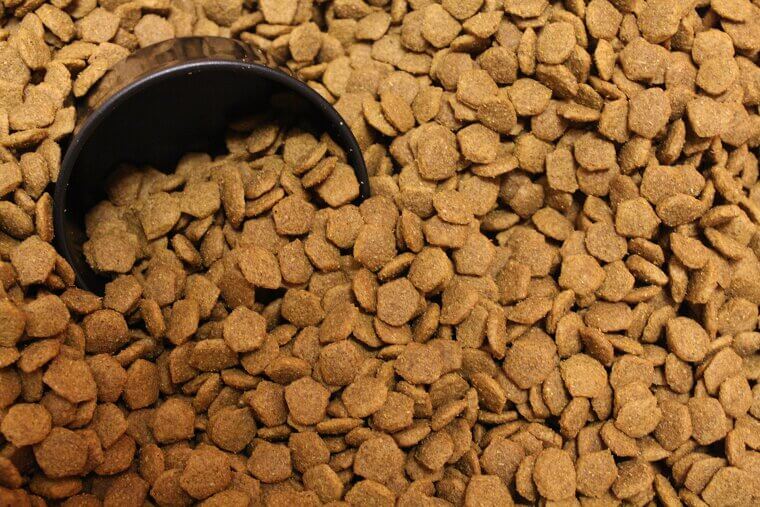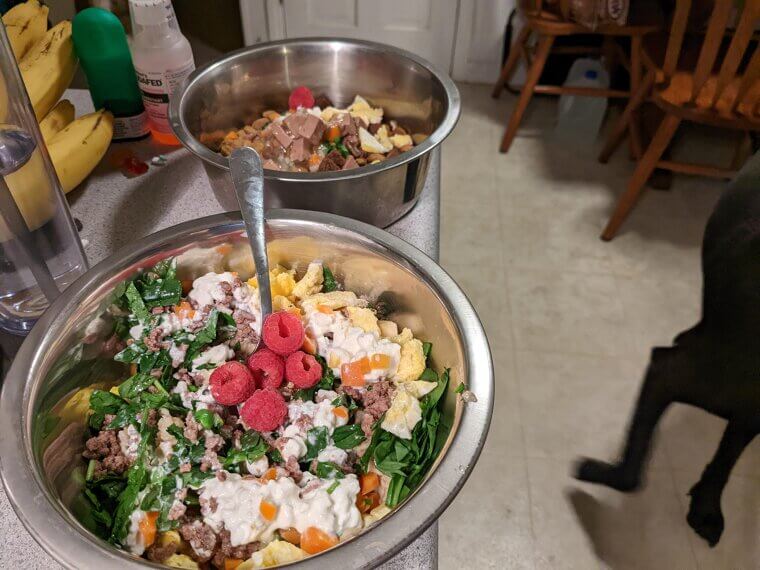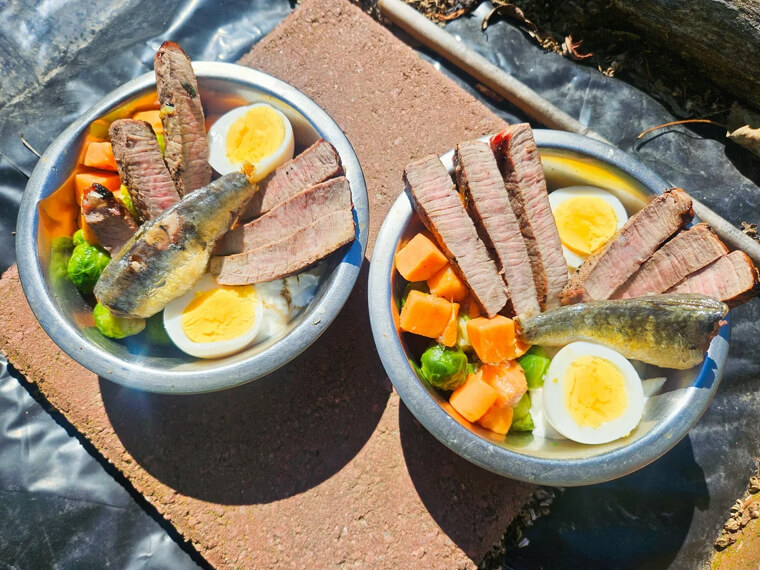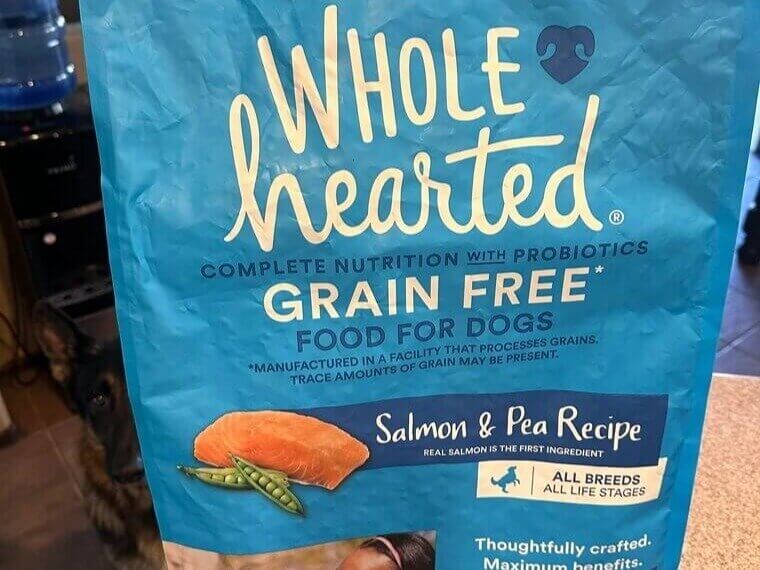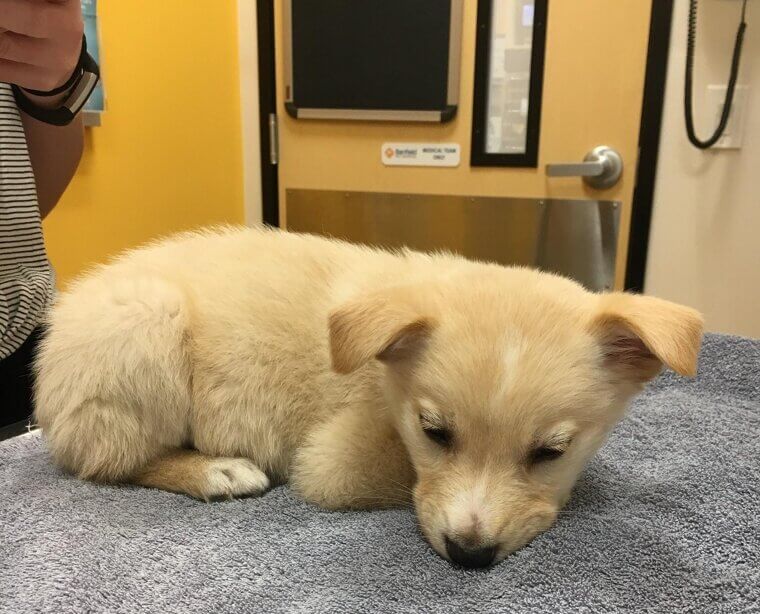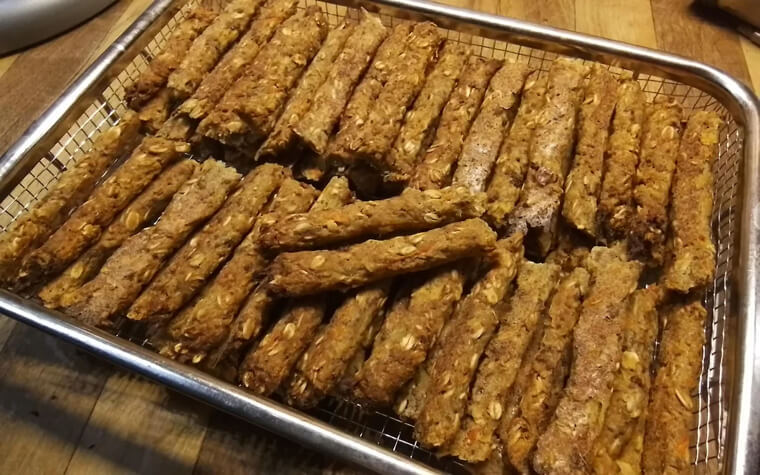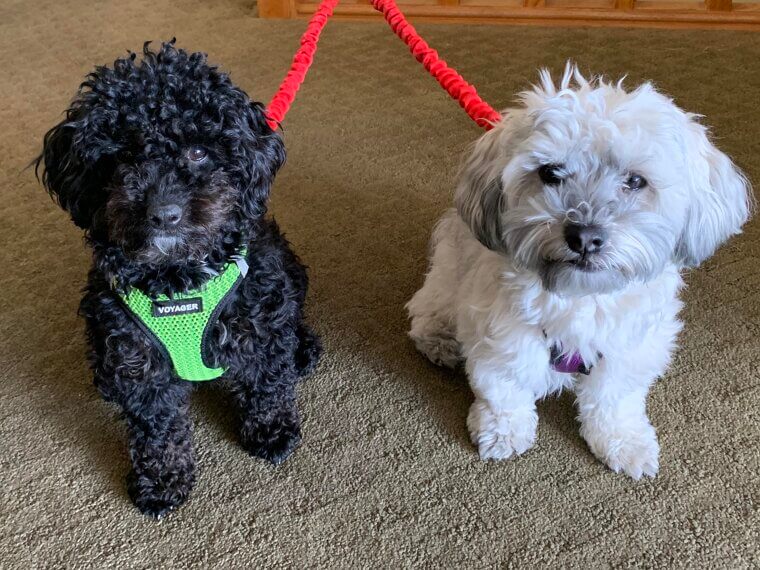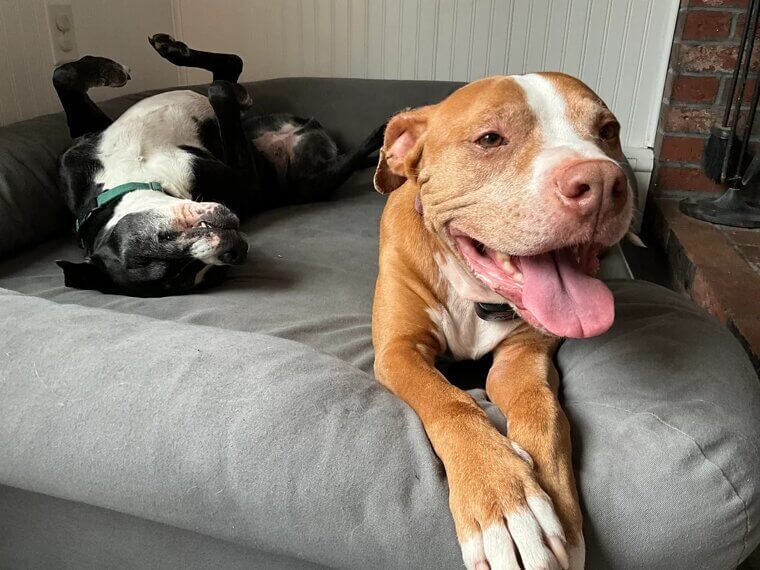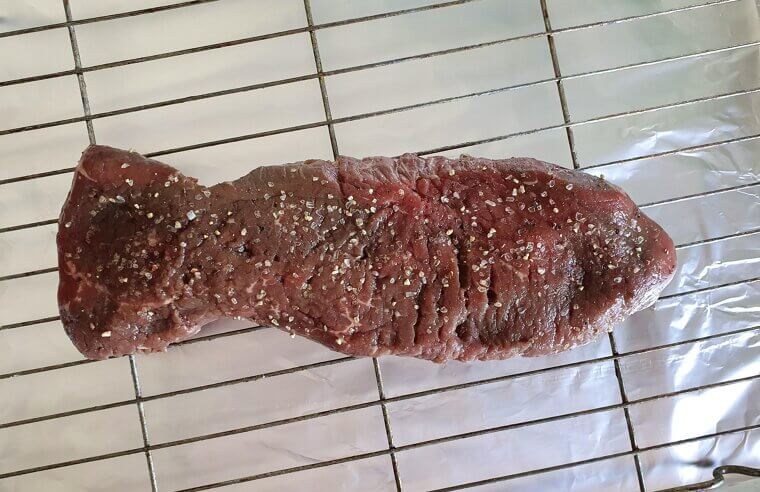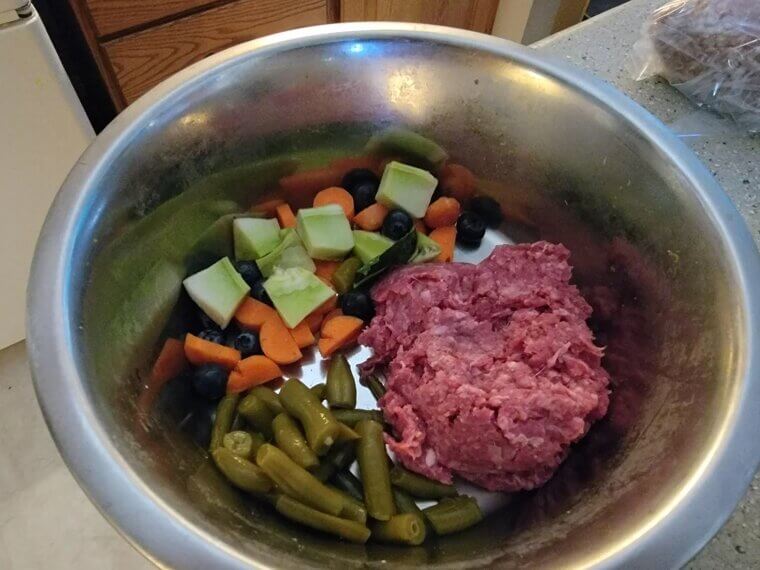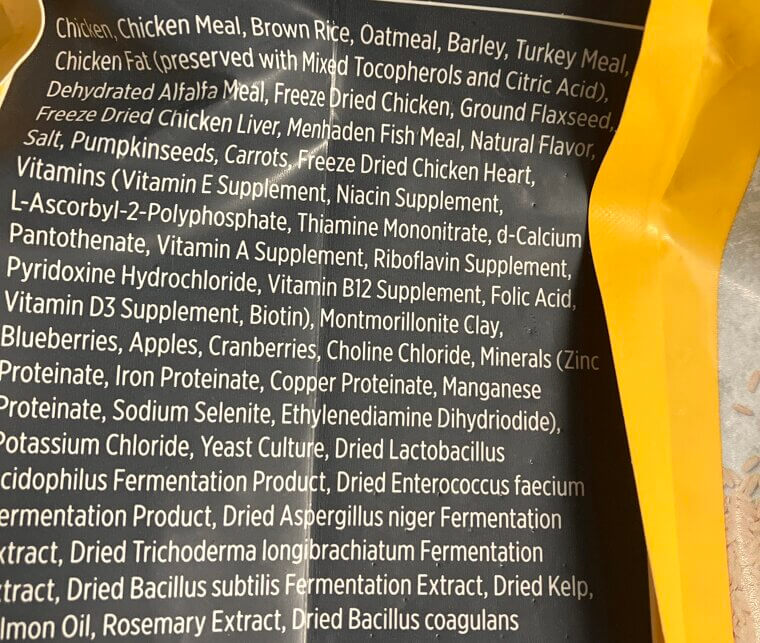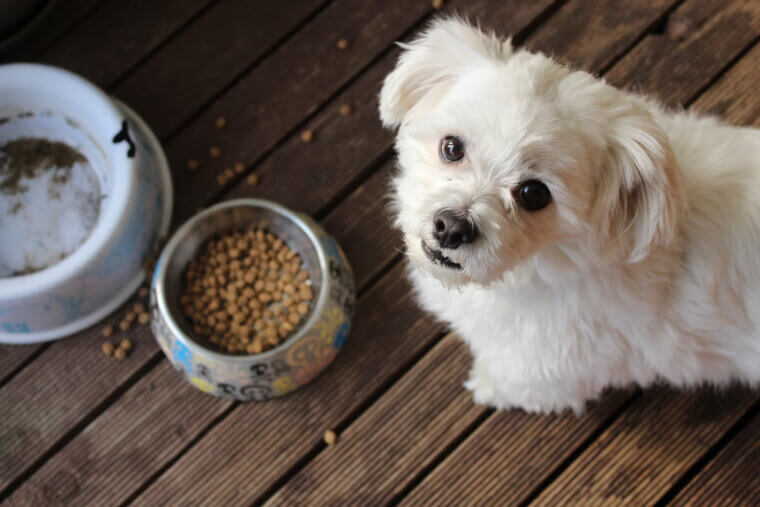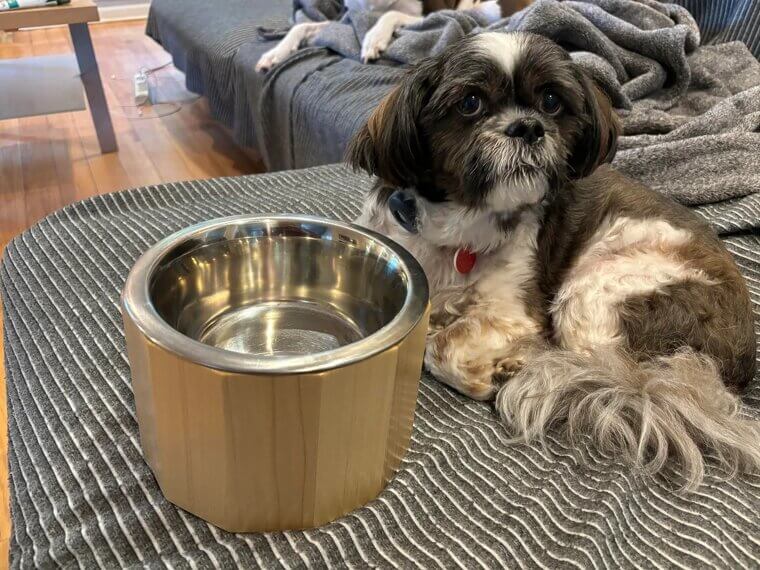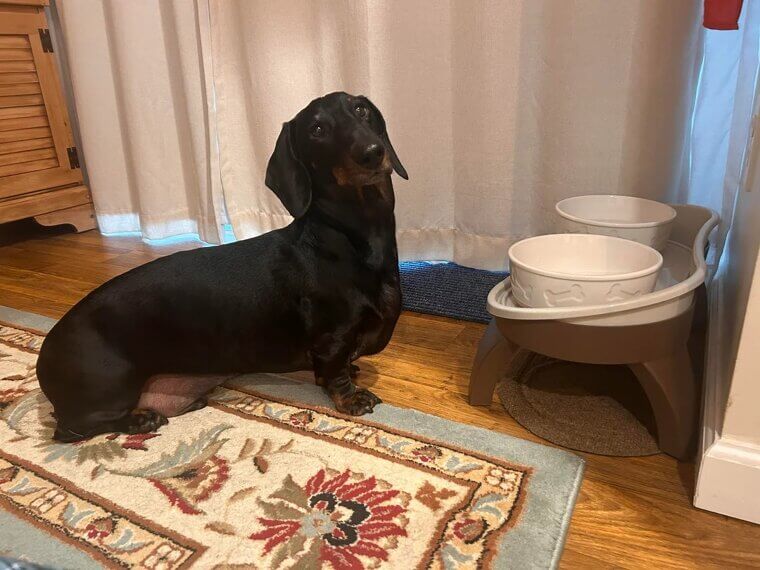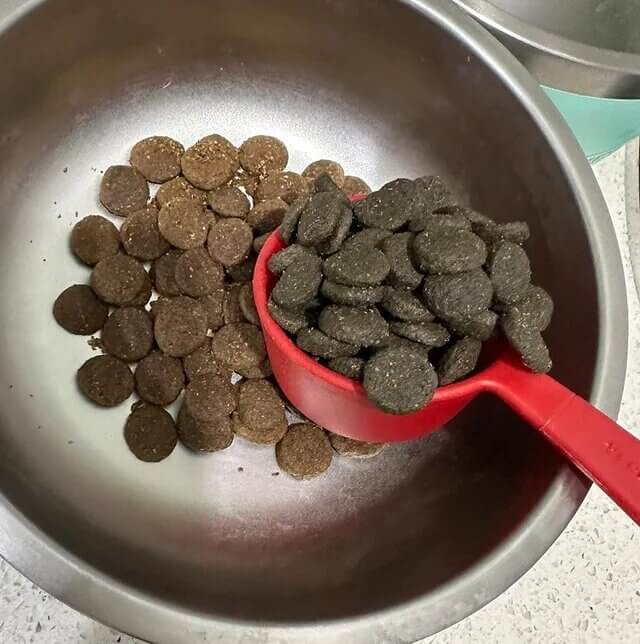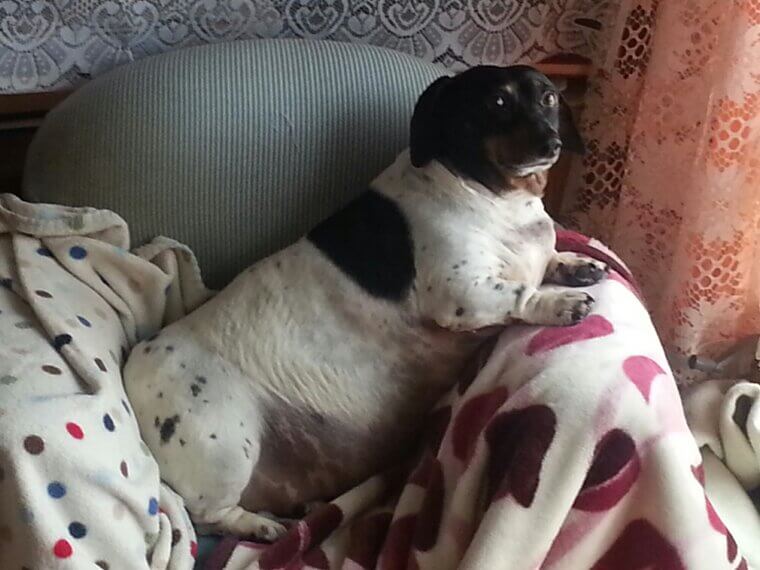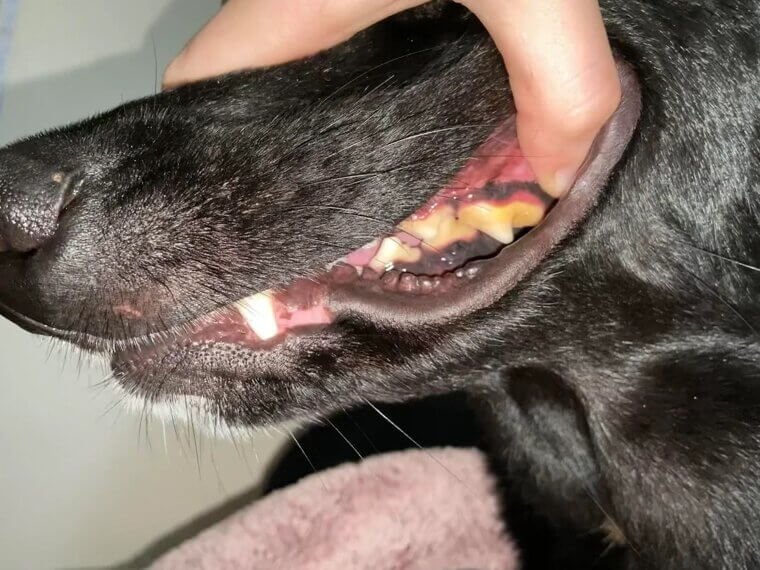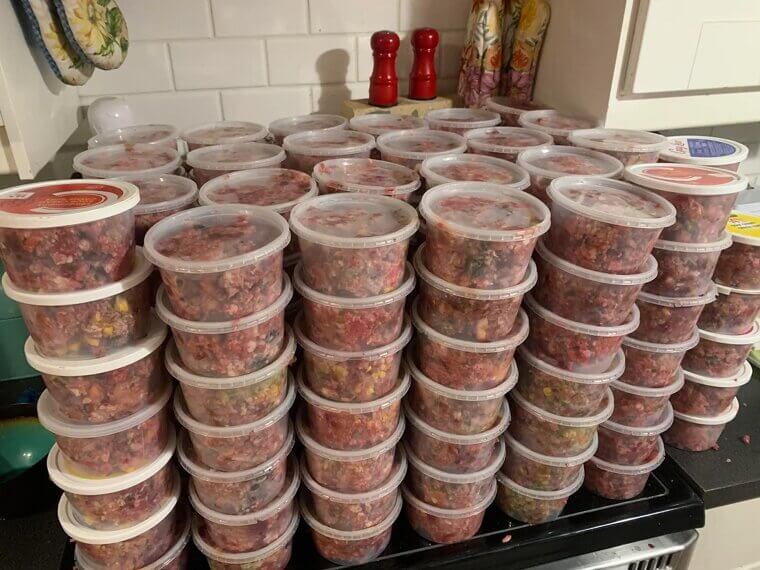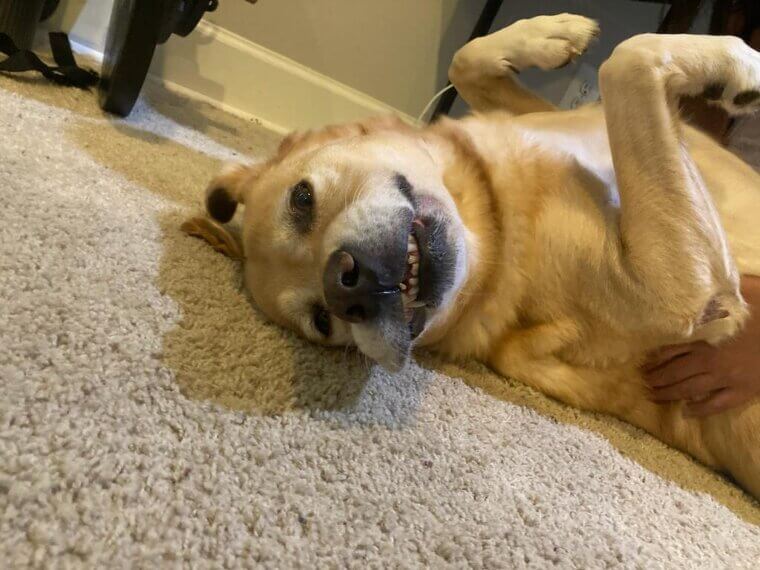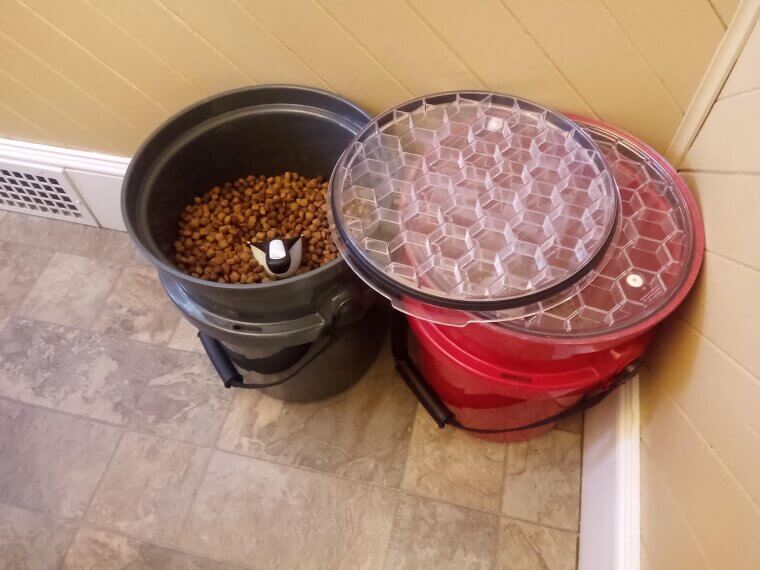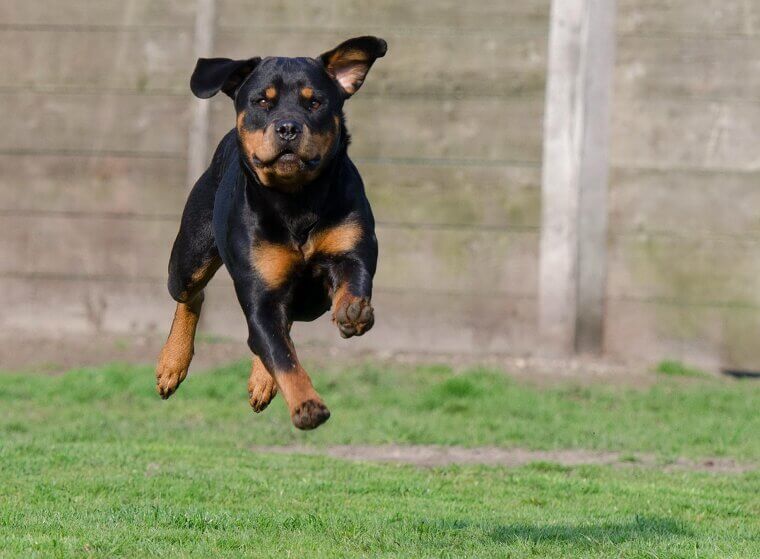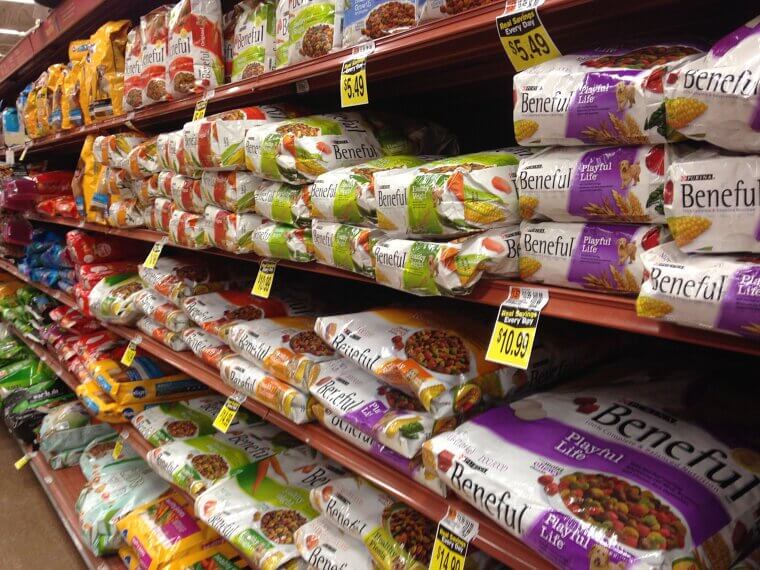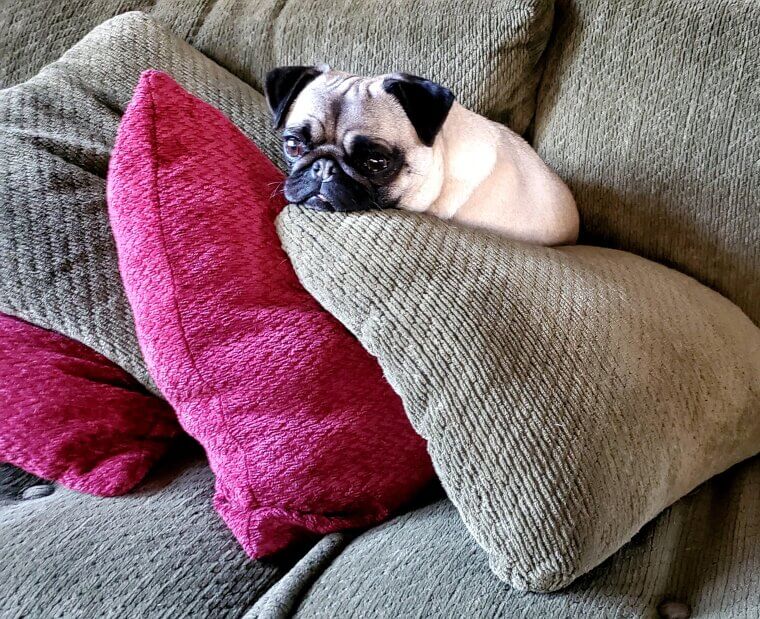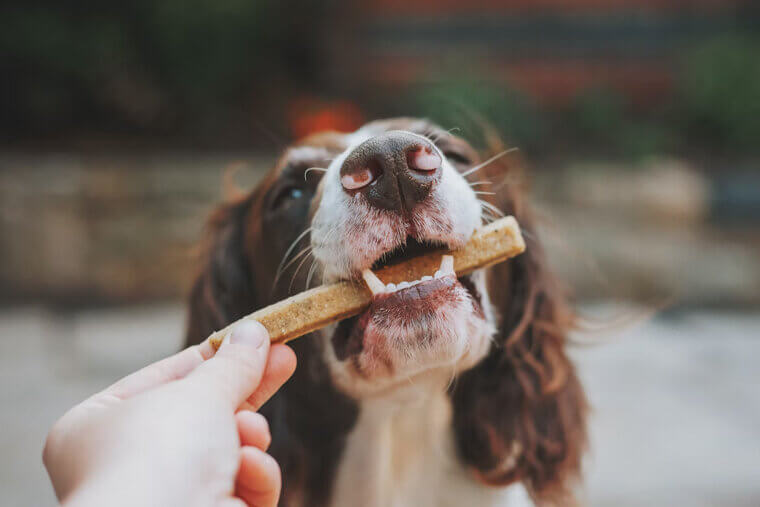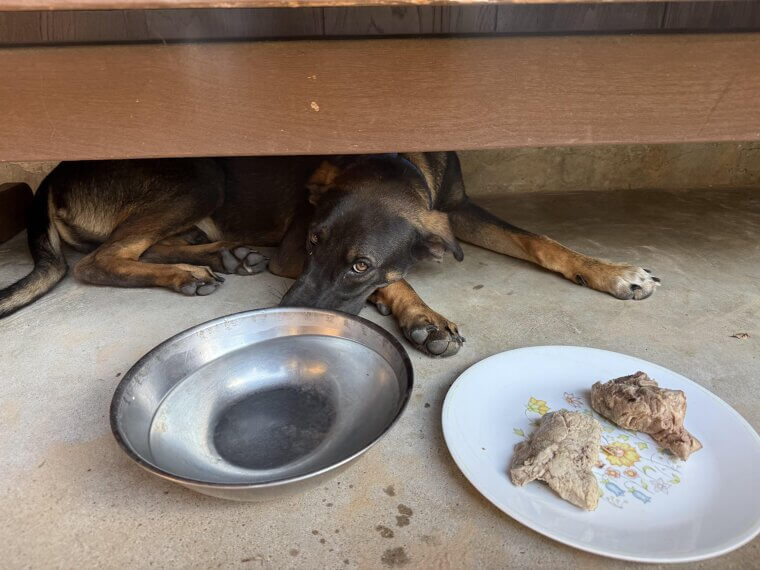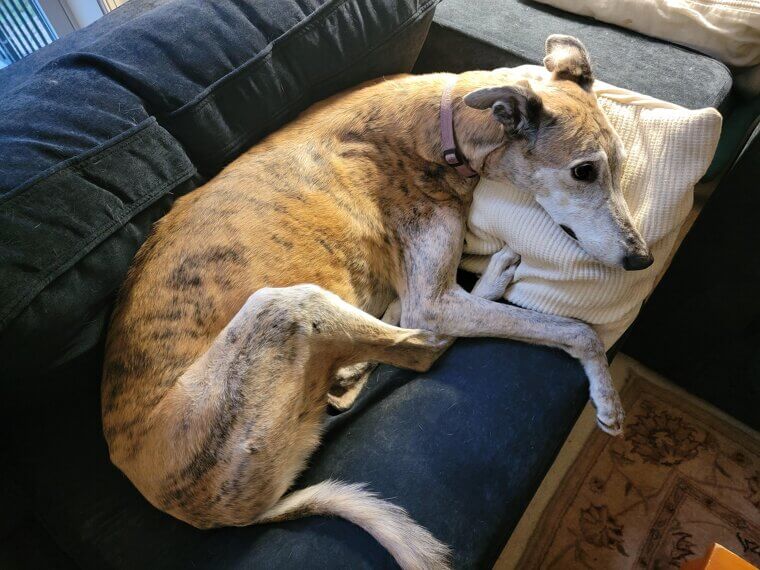Feeding Human Food Without Doing Research
Everybody knows that chocolate is toxic to dogs. However, did you know that grapes and onions are just as bad for them? Many human foods simply don’t sit well in the stomach, leading to a number of gut problems. To be safe, always do your research before feeding your dog human food.
Feeding the Wrong Food for Their Breed/age
Contrary to popular belief, variation is essential when it comes to pet nutrition. You can’t simply give your dog kibble every day for their entire life. Instead, choose a pet food suitable for their age, weight, and size. Include pet-friendly foods, such as rice or chicken, as well.
Overfeeding
One of the biggest mistakes that pet owners make is overfeeding. Just because your dog is begging doesn’t mean that they need food! Like us, they also enjoy a good treat every now and again, but feeding too often can lead to obesity and other related health conditions.
Giving Your Pet Table Scraps
It’s important to remember that your dog will very likely eat anything - even if it is toxic to their health. Avoid giving your dog table scraps unless you are fully confident that it won’t cause any damage. Chocolate isn’t the only human food that can hurt your dog!
Having an Inconsistent Feeding Schedule
Many people don’t understand just how important having a consistent feeding schedule is for their dog. If you feed them at different times of the day, it can cause confusion and anxiety. More so, inconsistent feeding leads to disrupted digestion.
Not Providing Fresh Water
As a general rule, you should be refilling your dog's water bowl with fresh water every second day. Obviously, if you have more dogs, it should be done daily. Dehydration in dogs is surprisingly common and can lead to severe kidney issues.
Ignoring Food Allergies
Just like humans, dogs can also experience food allergies. If you notice that your dog has skin breakouts or experiences digestive issues after eating a certain type of food, it is possible that they are allergic to it. It is essential to monitor any changes in their behavior after trying a new type of food.
Feeding Them One Large Meal per Day
Some people believe that feeding their pet one large meal per day is the most effective approach. It’s not. In fact, this feeding schedule is likely to lead to energy dips throughout the day, as well as unnecessary bloating. Instead, feed them two to three smaller meals, spread evenly throughout the day.
Feeding Them Too Many Treats
We all love giving our pets treats. Not only is it a way of showing our love, but they can also be used in training. However, treats should never make up more than 10% of your dog’s diet. They are generally made up of empty calories, meaning that they can lead to very rapid weight gain.
Choosing Food Based on Price Alone
There’s no denying that dog food is expensive. However, don’t base your pet's diet on what is cheapest. If you cannot afford to feed a dog proper nutrition, you shouldn’t have a dog at all. If kibble is too expensive, try feeding them cheaper human foods, such as rice and dog-safe leftovers, or vegetables and meat.
Using Homemade Diets Without Vet Guidance
Like people, every dog is different. Before making any decisions about your dog's diet, consult with your veterinarian first. This way, you will be able to make an informed decision about whether your dog needs certain foods or restrictions. Homemade diet plans also pose the risk of a nutrient imbalance.
Ignoring Portion Control
Every bag of dog food comes with recommended portions based on your dog's size, weight, or breed. Instead of guessing how much they need, always adhere to this guideline, as it will prevent any weight gain or gut issues.
Assuming That Grain-Free Is Always Better
Don’t assume that grain-free foods are better for your dog. Ultimately, not all dogs require it, making it a completely unnecessary component of their diet.
Skipping Vet Visits
It is recommended that you take your dog to the vet every few months for a thorough checkup. Don’t skip out on their scheduled appointment! You’d be surprised by just how quickly a health issue can pop up. More so, your vet will be able to offer tailored dietary advice.
Using Food as a Pacifier
Don’t use food as a pacifier for your dog! If they are bored and struggling to sit still as a result, food won’t solve the problem; it will only contribute to weight gain. Instead, invest in a pet-friendly toy to keep them occupied for as long as possible. Exercise is also essential in this case.
Not Adjusting Diet With Age
As your pet gets older, different nutrients become essential. You cannot feed your pet the same food throughout their lifespan. Instead, check in with your vet to see exactly what nutrients they need and prioritize these.
Feeding Based on Appetite Alone
Dogs tend to overeat, especially when they are puppies. Unlike people, they don’t understand that overeating can lead to weight gain, which heavily impacts their overall health. Never feed your pet based on appetite alone!
Not Rotating Protein Sources
Dogs get bored with the same chicken-and-rice routine just like we’d get tired of endless sandwiches. Sticking to one protein can also lead to allergies or nutrient deficiencies, so it’s best to switch things up. Providing protein, such as beef, fish, and lamb, keeps mealtime exciting and healthier
Skipping Breakfast
Breakfast isn’t just for humans. Dogs who miss their morning fuel often end up sluggish or begging extra hard for treats later. A proper start to the day helps boost energy, improve digestion, and even influence behavior.
Not Reading Food Labels
Many foods have hidden additives and fillers that you don’t want to feed your dog. Be sure to properly read every food label before adding it to your dog's diet.
Feeding Low-Quality Kibble
Not all kibble is created equal, and your dog deserves the best. Bargain bags may be cheap, but they often contain fillers and dyes, and have barely any protein. Your pup deserves steak night, not the fast-food drive-thru version of dog food.
Not Cleaning Food and Water Bowls
That slime in your dog’s water bowl is a pool party for bacteria. Dirty bowls can lead to tummy troubles and worse. A quick daily wash keeps things safe and fresh. If you wouldn’t eat off a crusty plate, don’t expect your dog to either.
Feeding During Stressful Times
Trying to serve dinner while fireworks explode or movers stomp through the house is a recipe for stomach upset. Stress hormones can interfere with digestion. Dogs do better eating in calm, safe spaces.
Feeding Your Pet Spoiled Food
Many people don’t know that dog food can actually go off. As a result, they continue to feed their furry friend spoiled food, even though it can cause serious gut damage. To avoid this, always check the best-before date on kibble, meat, or canned dog foods.
Not Monitoring Weight Changes
A few extra pounds may seem harmless until your dog’s “chunky stage” turns into arthritis or heart problems. Skipping weigh-ins means missing early warning signs. Keep an eye on those ribs; if you can’t feel them easily, it’s time to rethink portion sizes before things snowball.
Ignoring Dental Health
Food doesn’t matter if your dog can’t chew it properly. Ignoring dental care can lead to plaque, gum disease, and even organ issues. Regular brushing, dental chews, or vet cleanings go a long way.
Feeding a Raw Diet Without Vet Approval
Raw diets sound natural, but without vet guidance, they can go very wrong. Salmonella, nutritional imbalances, or even fractured teeth can sneak in. Some dogs thrive on carefully planned raw meals, others don’t. Either way, winging it is very risky.
Using Food as a Reward Constantly
Treats are great motivators, but turning every good sit into a snack fest can pack on pounds. Over time, food loses its magic if it’s overused. Mixing in praise, toys, or belly rubs keeps rewards exciting without turning your dog into a walking cookie jar.
Not Storing Food Properly
Leaving kibble bags half-open or cans sitting out is an open invitation for spoilage. Air, heat, and pests can zap nutrients or worse, make your pup sick. Airtight containers and cool storage are your friends. After all, nobody wants their dinner tasting like stale pantry dust.
Overexercising Your Puppy
Although puppies are energetic fur missiles, pushing them into long jogs or endless fetch can hurt growing joints. Their bones and ligaments are still developing, and short play sessions are perfect for them.
Feeding Based on Marketing Claims Alone
Shiny bags with words like “premium” and “gourmet” don’t guarantee nutrition. Pet food ads are designed to woo you, not necessarily fuel your dog. Flip that bag around and read the ingredients. Your dog needs protein, not promises.
Not Considering Activity Level When Feeding
A couch-potato pug and a marathon-running border collie can’t thrive on the same portions. Ignoring exercise levels results in either overfed loungers or underfed athletes. Calories need to match activity. Otherwise, you’re asking for weight gain, lethargy, or nutrient shortfalls.
Feeding Puppies Adult Food
Adult food skips the extra protein, fat, and nutrients puppies require. Skipping puppy-formulated food is like sending a toddler to school with only black coffee and toast. Give them the proper fuel while they’re still building bones and brains.
Not Watching for Digestive Symptoms
Loose stools, gas, or constant tummy rumbles aren’t “just how your dog is.” They’re clues. Ignoring digestive symptoms can lead to bigger issues, from food allergies to chronic illness. If dinner keeps upsetting your dog’s stomach, it’s time to play detective and tweak the diet.
Not Exercising Your Dog Enough
On the flip side, letting your dog laze around all day turns them into a bored, restless couch ornament. Exercise is as beneficial for their brain as it is for their body. Without walks or play, expect chewed shoes and bad moods. A tired dog, as they say, is a happy dog.

